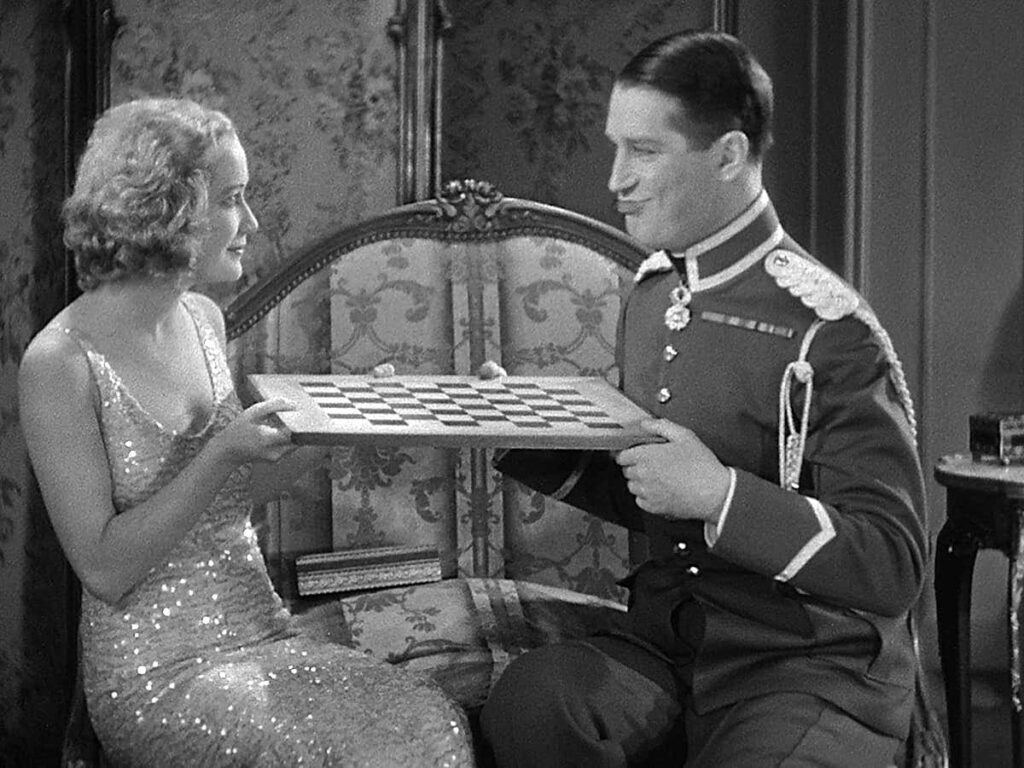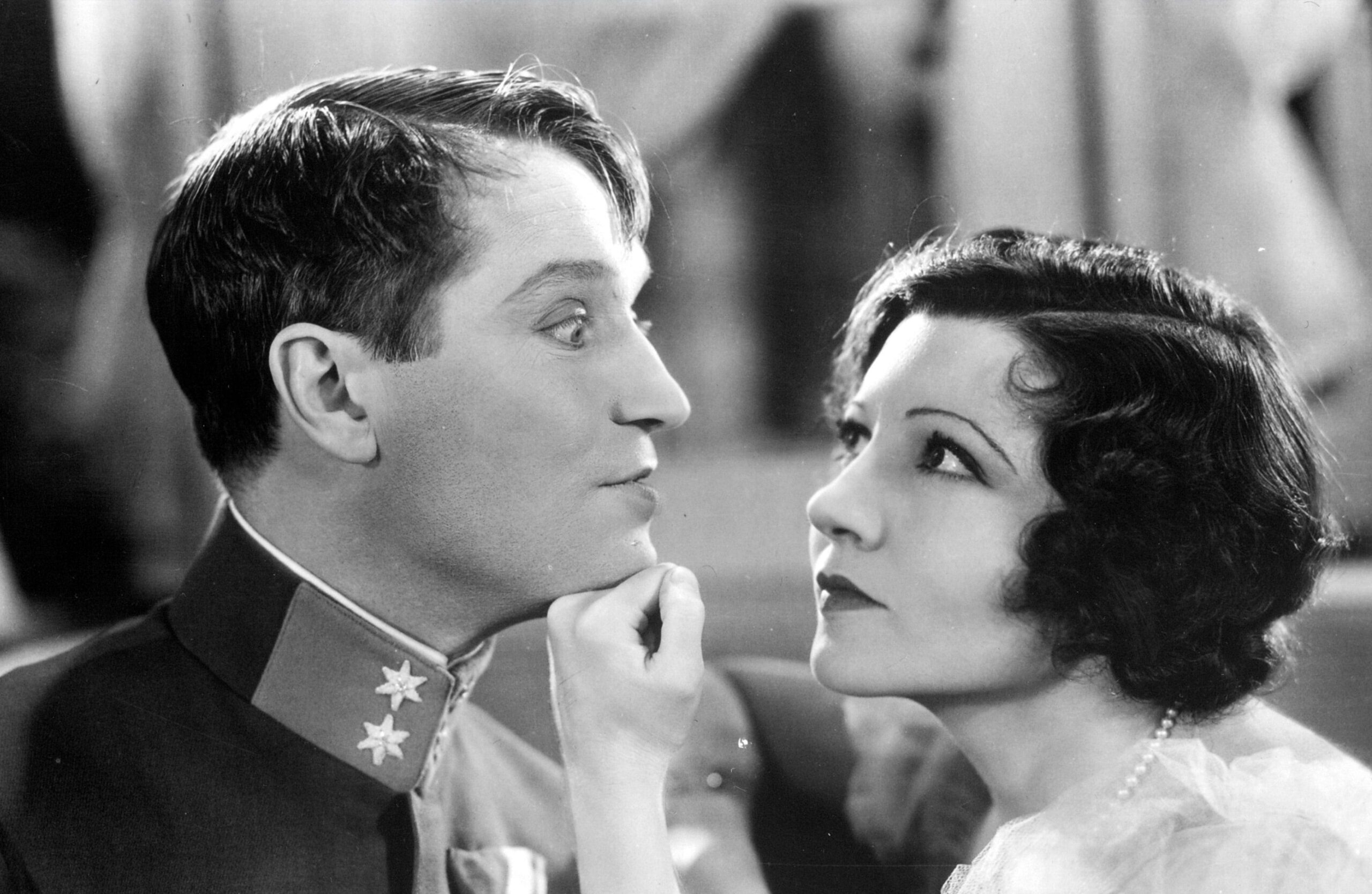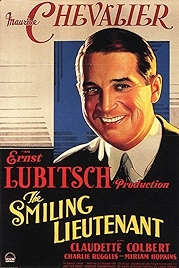Gay – in the old sense – is probably the best way to describe 1931’s The Smiling Lieutenant, a blithe, smart, quick and gossipy comedy from director Ernst Lubitsch starring Maurice Chevalier as the military man in question.
Chevalier, as French as they come and not making the slightest effort to hide it, plays a very Viennese womanising army officer who in very short order meets the love of his life, the violinist leader of a female orchestra, only to end up shanghaied into marrying the princess daughter of a visiting king, after a mix-up over who exactly the lieutenant was smiling at as the royal procession whizzed by. I know, everyday stuff.
One man, two women is the idea and it was doubtless pretty risqué in its day. But the interventing decades have put paid to that and without the frisson of the transgressive, most of the comedy has gone too.
But it remains a lovely, charming thing to watch, largely on account of its two female leads – Claudette Colbert as the unlucky single woman and Miriam Hopkins as the unlucky married one determined to have her man, even though he’s only got eyes for Franzi (Colbert).
In as good a demonstration of “the Lubitsch touch” as you’ll find anywhere, Lubitsch opens with a near wordless scene set outside the door of the lieutenant’s apartment. A creditor arrives with a sheaf of bills that need paying. He raps on the door. No answer. Raps again. Again no answer. And so he leaves. A mystery blonde arrives, knocks on the door using a complicated rhythm and – hey presto – it opens and she goes in. The camera stays outside in the hallway, where in one dissolve a gaslight comes on, indicating day has turned to night and much time has passed. The door opens again and the blonde leaves.
It is the apartment of Niki (Chevalier) and in that one short scene with no dialogue and not a single glimpse of Niki we have learned most of what we need to know about him – he’s broke, he’s devious and he likes women.

Lubitsch was from Berlin and set many of his films in Old Europe, which he generally depicts with affection. But there’s also an undertone of mockery in his portray of Princess Anna and her doting and doltish dad – Ruritanian to their fingertips and constantly on high alert about not being accorded the respect which they believe they deserve.
That turns out to be Anna’s arc – how to become a bit less Old World and a bit more New – encapsulated in the song Jazz Up Your Lingerie (one of several by Oscar Straus and Clifford Grey), which Franzi sings to the princess after the two women are thrown together and find they actually have something in common apart from Niki.
By 1931 Colbert was a dab hand at the sort of smart, independent woman she is playing here. In only her second feature Hopkins has the harder role, as the teary, silly, spoiled princess learning a few hard truths about the world and demonstrates she’s every bit as good at light comedy as Colbert.
Though it pauses here and there for another of Straus and Grey’s fairly unnecessary but bouncy sub-Cole Porter songs, it rattles along, it really does, and Lubitsch does whole chunks of it almost as a silent movie, finding no need to add words when images do the talking. He’s quite at odds with a lot of Hollywood comedies of the era, which went all-in on the chat when the talkies arrived – think of all those screwball comedies – but the storytelling techniques he learned as a director in the silent era serve him (and us) well.
The Smiling Lieutenant – Watch it/buy it at Amazon
I am an Amazon affiliate
© Steve Morrissey 2023

